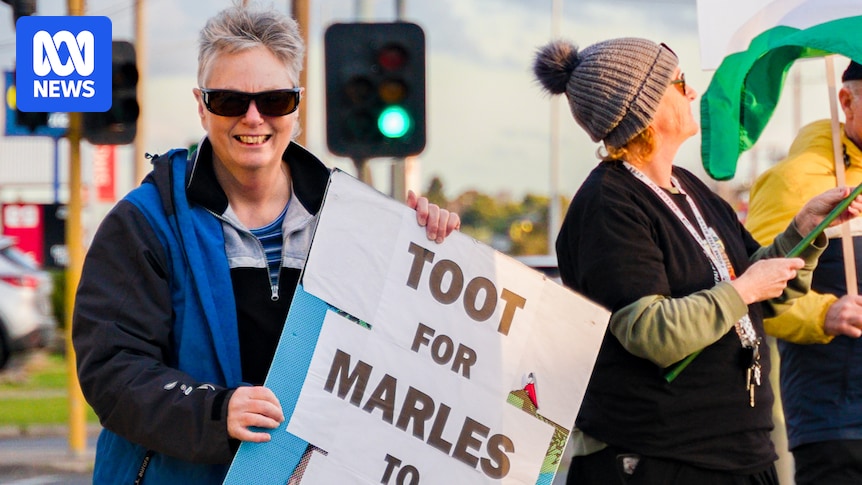
Retirement for senior citizens like Marie Martin is taking on a new dimension, far from the traditional image of leisurely days filled with bridge games and family visits. Instead, Marie and others find themselves at the forefront of activism, attending weekly protests and even facing court appearances. This newfound freedom allows them to fight for what they believe is a chance to create a better world.
But what drives these retirees to protest when they could be slowing down and enjoying life? We spoke to three retirees who find fulfillment as activists, driven by a sense of responsibility and a desire to rectify the ‘mess’ left by their generation.
The Moral Imperative: Marie Martin’s Journey
For Marie Martin, the concept of detaining refugee children was intolerable. This conviction led her to join Grandmothers Against the Detention of Refugee Children. “It was just morally wrong. And wicked,” says the 78-year-old Melbourne grandmother, reflecting on the government’s past policy.
Marie began her activism after retiring as a pharmacist 15 years ago. She was inspired by the sight of the Grandmothers, clad in purple—the color of the suffragette movement—in a newspaper article. Their mission was straightforward: end the detention of asylum seeker children.
The Wangaratta-born “country girl” soon joined the group, participating in protests outside local parliamentary offices and even traveling in a convoy to Canberra. “About 500 women went into parliament, all dressed in purple, and it made a bit of an impact,” she recalls. Their efforts bore fruit when, in February 2019, then-Prime Minister Scott Morrison announced the removal of all asylum seeker children from Nauru.
Marie continues her advocacy by offering emergency housing for refugees and remains a passionate human rights advocate, despite her disappointment in the outcome of the Voice to Parliament referendum. “Mother Cabrini once said, ‘Ask yourself what sort of world you want to live in,’ and I think that’s a great question for everyone to ask themselves,” she shares.
Climate Action: Lee Coaldrake’s Commitment
Protesting is “exhausting, stressful, and nerve-wracking,” says 72-year-old Lee Coaldrake, a retired anaesthetist from Queensland. “It’s not a place you want to be, but a place you have to inhabit when you truly understand the existential nature of our problems.”
Since retiring eight years ago, Dr. Coaldrake has been active in climate activism, working with groups such as Extinction Rebellion and Move Beyond Coal. Her commitment has led to several arrests, including a 2022 incident where she was charged after unfurling an anti-coal banner in Queensland’s parliament.
Despite the challenges, Dr. Coaldrake remains steadfast. “While I am committed to protesting until our government recognizes the urgency and acts appropriately to address climate and ecological breakdown, it is not a comfortable space,” she admits. The activism has cost her friendships, but her daughters now express pride in her efforts.
A Lifetime of Activism: Jaimie Jeffrey’s Story
For 62-year-old Jaimie Jeffrey, activism has been a lifelong pursuit. “The first protest I led was in Year 8, which was a rebellion over the school uniform. And I won!” she recalls. Since retiring as a public servant, Jaimie has dedicated herself to full-time activism.
Working with the Independent and Peaceful Australia Network (IPAN) and other organizations, Jaimie focuses on issues like anti-AUKUS campaigns and local weapons manufacturing. Her activism has led to legal troubles, including charges related to a protest at Aerospace Maritime Defence Australia.
Jaimie emphasizes the importance of activism, especially for her generation. “It’s so important that we undertake activism, that we get out on the streets, that we pressure our governments and the weapons companies because if we don’t we’re just all complicit,” she asserts.
Looking to the future, Jaimie stresses the need for younger generations to join the cause. “We need succession planning. We need to bring young people in all of the time,” she says. “There’s a lot to learn, a lot of skills to learn, and a lot of experience to be gained.”
Implications and Future Prospects
The activism of retirees like Marie, Lee, and Jaimie highlights a growing trend of older generations taking a stand on critical social issues. Their efforts not only bring attention to these causes but also inspire younger generations to engage in activism.
As these retirees continue their advocacy, the question remains: will their efforts lead to lasting change? The answer may depend on the ability of these movements to attract and empower younger activists, ensuring that the fight for a better world continues across generations.







